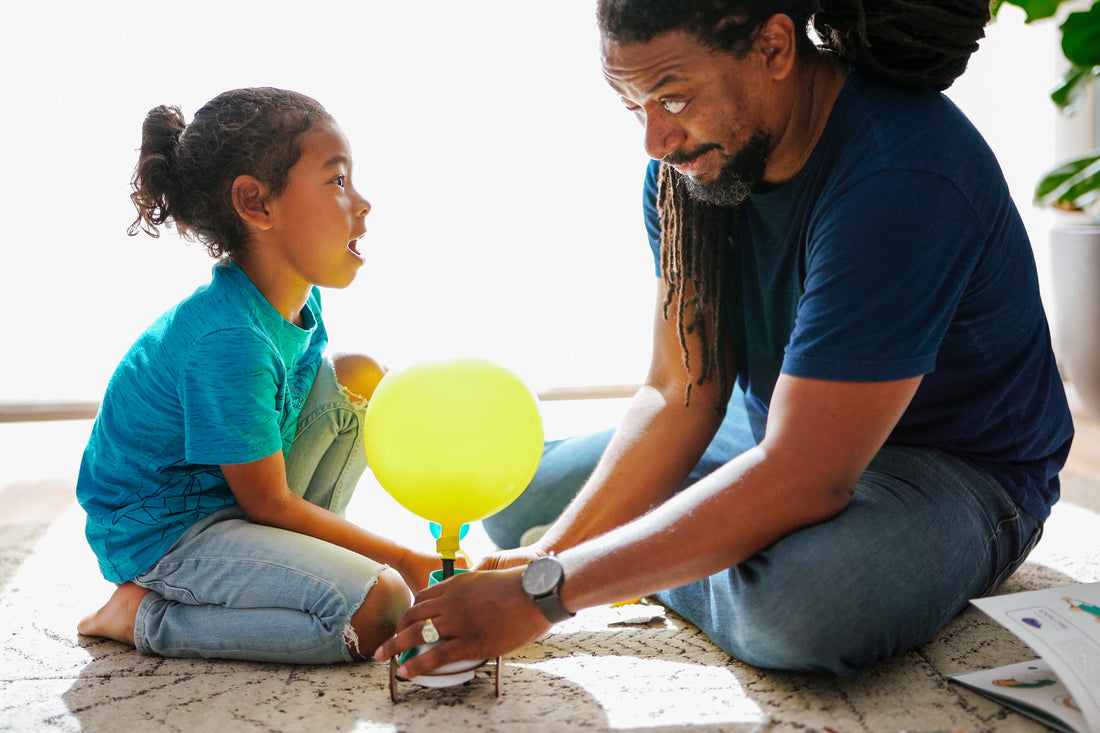
Nurturing Social-Emotional Growth in 6-Year-Olds: Tips for Parents
What is Social-Emotional Learning for 6-Year-Olds?
At age 6, your little one is growing more and more independent. They love showing you how old they've gotten and doing things that might be just a little more dangerous for comfort. Along with their desire to be reckless every once in a while, they now have a stronger desire to be accepted by their peers. They are better at cooperating with others, though their interactions are still gendered segregated. Boys will continue playing with boys, and girls will play with girls.
As a parent, you should allow your little ones some say in what sports they'd like to try or what toys they want to play with. Encourage them to get involved in a sport or an extracurricular of their choice, as this period of growth is when kids develop skills, attention spans, and understanding of teamwork to a whole new level.
With their language capabilities expanding, your little ones some say in what sports they'd like to try or what toys they want to play with. Encourage them to get involved in a sport or an extracurricular of their choice, as this period of growth is when kids develop skills, attention spans, and understanding of teamwork to a whole new level.
With their language capabilities expanding, your little ones will get better at describing what they feel and what they are thinking.
Lying, cheating, and stealing are expected somewhat at this age, as these young kids are still attempting to figure out where they fit and what is acceptable, so make sure you address what acceptable behavior is with them.
Parental Support for Social-Emotional Development
Ways you can help:
- support your child's self-esteem by encouraging them to have fun and express themselves
- don't be afraid to talk to your kids about tough topics
- though it's okay for your little one to enjoy some time on electronic devices, make sure you set some time limits to ensure that they still get enough physical play time and sleep
Key Social-Emotional Milestones Between Ages 5-7
Your child will:
- Measure their performance against others
- Feel more comfortable spending time at other places without you, such as a relative's or friends' house
- Continue to develop their social skills by playing with other children in a variety of situations
- Be able to communicate with others without your help
- Possibly want to be around you more at age 5 than at age 4. By age 8, they will mostly prefer being around their peers.
- Start to feel sensitive about how other children feel about them
Recognizing Red Flags for Social-Emotional Development
By the time your kid reaches age 6, if you notices these types of behavior, consider paying more attention to what efforts are going into helping the kid develop social-emotionally. If the extent of their behaviors worries you, you can always talk to your doctor, a health professional, or a psychologist.
My Kid:
- He is not interested in playing with other children
- They are unable to share or take turns with other kids
- They are extremely "rigid" about routines and becomes extremely upset when things are changed
- They have extreme difficulty separating from you
- They are too passive or fearful and does not want to try things other kids their age are doing
- They have extreme fears that interfere with daily activities
Supporting Social & Emotional Development in 6-Year-Olds
Developing Self-Awareness
While your little ones enter into 1st grade, they already have a pretty good understanding of the basics of emotions. Continue helping your little ones become more comfortable with emotions by creating regular opportunities to talk about emotions. As your little ones continue developing into their own unique self, support them in discovering their strengths and their interests.
How to talk to your little ones about what feelings look like:
When reading a book together, challenge your little ones to think about what the characters are feeling during specific instances. By doing so, you can challenge them to practice their empathy skill while also practicing their emotion recognition abilities.
How to talk to your little ones about the emotions they are feeling while they are experiencing them:
If your little ones seem upset, you can try talking about their emotions by saying, "I notice your arms are folded, and your lips are pointed downwards. Can you tell me how you are feeling right now?"
How to talk to your little ones recognize their strengths and encourage their interests:
Encourage them to reflect on their strengths and interest by asking them questions like, "what is your favorite subject in school? What is your favorite thing to do over the weekend?"
Fostering Self-Management
Help your little ones learn about goal-setting by starting with small goals each day:
Ask your little ones about what they would like to accomplish within the day, tomorrow, or even next week. Try asking these types of questions to encourage them to practice goal-setting.
Try this:
- What will you do after you're done eating dinner?
- What would you like to do this weekend?
During times of struggle, your natural parental instincts might cause you to step in to help your little ones. But maybe think twice about the next time! These moments of struggle can put your little one's persistence to the test as well as challenging them to learn how to overcome challenges themselves. Instead of jumping in and providing the solution try these phrases to guide them instead!
Try this:
- What else can you try instead that might work better?
- I think you can try to do this. How else can you solve it?
- Sometimes switching to a different method might help you solve something.
- Let's take a step back and figure out why this isn't working and what the problem is. Then we can think about solutions!
How to talk to your little ones about resilience and perseverance:
When you notice your little ones struggling while trying a new activity together, encourage them to keep going.
Try saying something like this:
- "I know that ____ is hard. It was also hard for me too, but if we keep trying it together, we'll get better at it! I'm proud of you for stepping outside your comfort zone and trying something new!"
Point out times when your little ones show perseverance or grit
- When your little ones accomplish something, try to praise them for their efforts rather than their accomplishment.
- Instead of saying "goof job on your test", try saying, "you studied so hard for that grade and didn't give up. I'm proud of your perseverance."
Cultivating Social Awareness
How to talk to your little ones about the feelings of others in real-life
"How do you think your friend Sally felt when you shared your favorite toy with her today?" Don't just end the conversation there, keep it going by following up with questions like, "why do you think she felt that way?" and "How did it make your feel when you did that nice things for her today?"
How to discuss friendly and courteous behavior with your little ones:
- "I love seeing you smile, your smile always brightens up my day. You should remember to smile more often, you never know how much your beautiful smile can impact someone's day!"
- Don't forget to say please and thank you to the people around you, it makes them feel appreciated for the things they do for you!
- Remember, a lot of their behaviors come from modeling, so don't forget to actively practice being courteous within your life, as your behaviors will naturally remind them about the importance of practicing these behaviors.





 Most Popular
Most Popular
